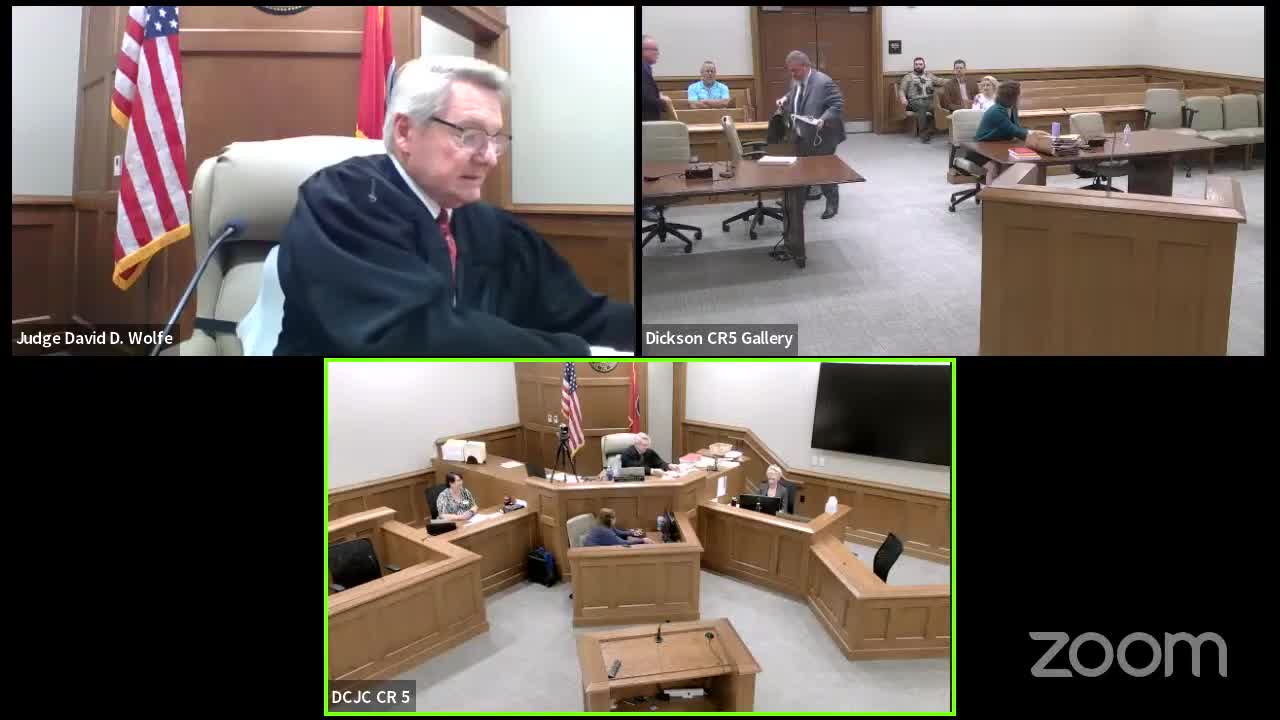Judge rejects drug-court placement, imposes 10-year concurrent sentence in McElhaney burglary case
Get AI-powered insights, summaries, and transcripts
Subscribe
Summary
Judge David D. Wolfe on Sept. 29 sentenced John Wesley McElhaney to an aggregate 10 years in state custody after finding multiple sentencing enhancement factors and denying placement in the local drug-court program.
Judge David D. Wolfe on Sept. 29 sentenced John Wesley McElhaney to an aggregate 10 years in the custody of the Tennessee Department of Correction after hearing victim testimony, a presentence investigation and programmatic evidence from the district—s drug-court staff. The judge found enhancement factors including a long prior criminal history, the victim—s vulnerability and that McElhaney committed the instant offenses while on probation; the court denied defense requests to place McElhaney in the 20th Judicial District recovery (drug court) program.
Prosecutor and defense counsel presented contrasting pictures. Prosecutors stressed McElhaney—s extensive criminal history spanning about 20 years and multiple felony convictions, arguing that confinement was necessary to protect the public. Defense counsel urged placement in the recovery court program, noting the program had given McElhaney a provisional acceptance and that the statutory sentencing goals encourage rehabilitation when reasonably feasible.
Victims described the incidents and effects on their families. Michael Williams Zajac testified his surveillance video shows McElhaney walking his property at night, peeking into windows and entering an attached garage and barn. "My family's security was stolen that night," Zajac told the court, saying the household had since spent thousands of dollars on a new security system and lost sleep. Mildred Thaxton described McElhaney pounding on her front door late at night and finding a firearm on her porch; she testified she has had sleepless nights and sought care at an emergency room as a result. "I've had many, many nights of sleepless nights," Thaxton said.
Wendy James, a probation officer who prepared the presentence investigation report, testified McElhaney has an extensive prior record and scored "high risk" on the needs-and-risk assessment. The report documents prior probation revocations, multiple convictions across more than a decade and other sanctions; James also said she interviewed the victim and defendant and recommended treatment resources be considered.
Robert Scott Barnhill, case manager for the judicial district's drug-court program, explained the recovery-court structure, reported a provisional acceptance for McElhaney and described the program's treatment, supervision and sanctions. Barnhill said the program has a high success rate among graduates and outlined options for 28-day and longer placements, monitoring and graduated sanctions that could result in termination and serving a sentence.
McElhaney testified that he has a long history of substance use, described family losses and an overdose, expressed remorse and said he wanted to be in his children's lives. He acknowledged prior convictions, prior probation and being under the influence at the time of the August 2024 incidents. He also confirmed a provisional acceptance letter from the drug-court program and presented certificates of programming he completed while jailed.
After hearing argument, Judge Wolfe cited sentencing provisions in Tennessee law (the 40-35 series), found four enhancement factors (prior criminal behavior; victim vulnerability by age/living alone; commission while on probation; and an offense involving removal of a firearm from a vehicle) and rejected the defense—s request to order drug-court placement. The court imposed concurrent terms that, by agreement and cap, result in a total effective term of 10 years in the Department of Correction, with pre-sentence jail credits applied.
The court—s sentence memorializes findings the judge said were rooted in McElhaney—s long prior record and the victims— testimony about the lasting effects on their households.
